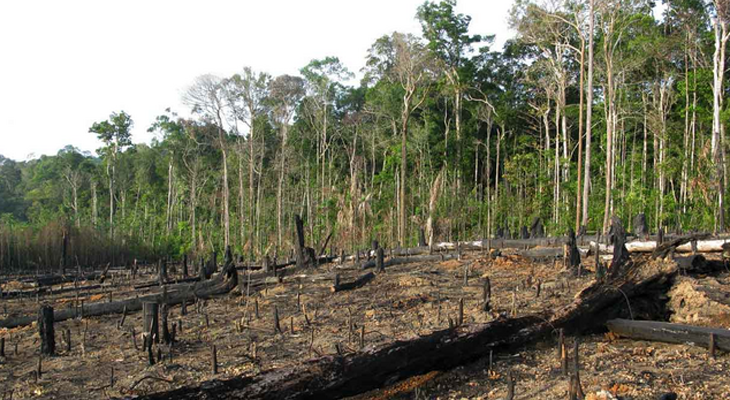Biodiversity loss, Modern Capitalism and Impact Investment


In recent years, the world has witnessed alarming rates of biodiversity loss and the devastating impacts of climate change. These issues are not isolated; they are interconnected manifestations of humanity's exploitation and abuse of nature. As our population grows and our economies expand, we must confront the harsh reality that our current trajectory is unsustainable and will have dire consequences for modern society.
Biodiversity loss, the decline of species and ecosystems, is occurring at an unprecedented rate. Human activities such as deforestation, habitat destruction, overexploitation of natural resources, and pollution have driven countless species to the brink of extinction.
The loss of biodiversity not only threatens the survival of these species but also undermines the stability and resilience of economic systems and thus modern capitalism .
Biodiversity loss and humanity future
Climate change, driven primarily by the emission of greenhouse gases from burning fossil fuels and deforestation, is wreaking havoc on our planet. Rising temperatures, extreme weather events, melting ice caps, and rising sea levels are just some of the consequences we are experiencing. These changes disrupt ecosystems, threaten food and water security, exacerbate poverty and inequality, and jeopardize human health and well-being.
At the root of these crises lies humanity's unsustainable relationship with nature. For too long, we have exploited natural resources without regard for the consequences. Our relentless pursuit of economic growth and consumption has come at the expense of the environment, pushing ecosystems to their breaking point.
As our population continues to grow and our economies expand, the pressure on the planet will only intensify. We cannot expect business as usual to continue without severe repercussions. The depletion of natural resources, the degradation of ecosystems, and the destabilization of the climate will inevitably lead to widespread environmental degradation, social unrest, and economic instability.
It is time for a paradigm shift. We must recognize that nature is not an infinite resource to be exploited but a delicate web of life that sustains us all. We need to transition to more sustainable and equitable models of development that prioritize the protection and restoration of ecosystems, promote renewable energy and resource efficiency, and foster resilience to climate change.
My honest opinion about ESG ETFs & Funds
In the realm of modern finance, Environmental, Social, and Governance (ESG) investing has taken center stage, presenting what appears to be an ideal intersection of values and value. ESG ETFs and funds have proliferated, promising investors the golden opportunity to align their portfolios with their principles. However, as we delve deeper, a critical question emerges: Do these ESG solutions truly make a tangible, traceable impact in addressing global warming?
“ With more funds labeling themselves as 'sustainable' or 'green,' it becomes increasingly challenging for investors to discern genuine ESG commitments from mere marketing tactics. ”
As a former Portfolio Manager at one of the most prestigious banks in Belgium, I was initially enthusiastic about the EU-SFDR regulation concerning Sustainable Finance. But when confronted with how it was presented to clients and the composition of ESG funds that included companies like Total Energies, my enthusiasm quickly waned.
My primary concern with listed ESG investments, such as ETFs and funds, is their lack of traceability and transparency. Investors often find themselves in the dark about where their money is going and whether it's genuinely making a positive impact on the lives of real people — people with faces, names, and real locations. When you invest in these ETFs, your only certainty might be about whom the fund management fees went to. If we want to reverse climate change, mitigate migrations, and curb illegal businesses such as human and drug trafficking, this gap in information must be addressed.
How Biocenosis Impact Investing can help avoid mass extinction.
Empowering local communities in biodiversity-rich areas with sustainable business models is key to combating biodiversity loss.One approach is to provide financial support for the establishment of community-based enterprises that leverage the sustainable use of natural resources to generate income while preserving biodiversity. For example, eco-tourism initiatives can create opportunities for local communities to showcase their cultural heritage and natural attractions, such as pristine forests, wildlife, and unique landscapes, while providing visitors with memorable experiences.
“ By promoting sustainable biodiversity practices and ensuring fair market access, these initiatives can incentivize conservation and positive returns for investors.”
By providing financial support for community-based enterprises and promoting sustainable practices like eco-tourism and non-timber forest product harvesting, we can incentivize conservation while supporting local livelihoods. Innovative financing mechanisms such as payments for ecosystem services further reinforce these efforts, rewarding communities for their conservation actions.
By investing in community-led conservation initiatives in biodiversity rich countries, we can achieve both biodiversity preservation and sustainable development goals for humanity.